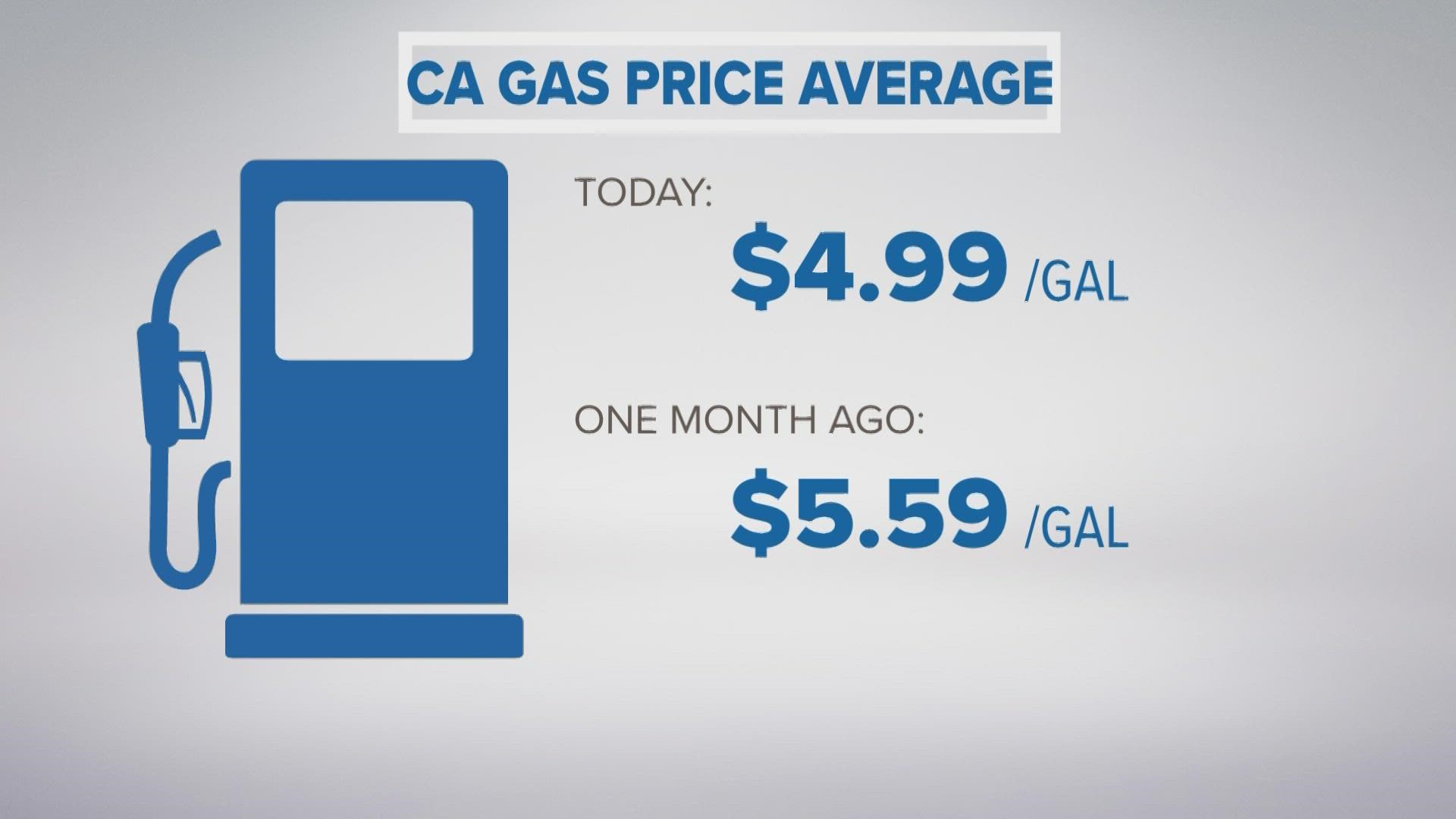SACRAMENTO, Calif. — For the first time since March 3, the average price of gas in California was below $5.00.
The California Energy Commission said the decline started immediately after the governor’s executive order to switch to the cheaper winter blend of gas. The Commission met Tuesday to discuss why California saw much higher prices compared to the rest of the country just last month.
Noticeably absent were any of the five oil companies that produce 97% of gas in the state. The commission made it clear they reached out individually to the companies to ask them to participate in the hearing.
"The lack of the participation of refineries, participation in this discussion, is really going to limit our ability to more deeply understand why Californians paid $2.61 more than other Americans," said Commissioner Patty Monahan.
Still, the Commission's Gordon Schremp went through a list of a combination of explanations including lower-than-normal inventories, lower-than-normal fuel imports, reduced refinery capacity and unplanned refinery outages.
“We're self sufficient," Schremp said. "We produce pretty much everything we need for consumers here locally. However, when there's a significant unplanned outage, additional supply needs to come from somewhere.”
The gas from overseas used to supplement the outages, he said, is more expensive.
UC Berkeley’s Haas Institute of Energy Director Severin Borenstein said that plays a role, but he has other thoughts.
"This isn't an issue of crude oil costs. It's not an issue of import restrictions. It's not an issue of refinery supply constraints. It's not an issue of market isolation," Borenstein said. "Those may be playing a role in a third or less than a third, but in the vast majority of these differentials, it's coming downstream. It's coming in the marketing distribution and retailing sectors. Refiners continue to play a huge role there; they own some of the downstream stations."
CEO of Consumer Watchdog Jamie Court said the prices are because of greed.
“In 2022, the oil refiners in California double their profits. These are unprecedented profits, they're unprecedented windfall profits, and it's all because of the market power of the oil refiners,” said Court.
While the oil companies did not participate, the CEO of the Western States Petroleum Association, Catherine Reheis-Boyd said it comes down to mostly policymakers.
"We have a greater tax burden, we have high environmental program costs, our market is isolated, which makes us more vulnerable to higher costs," she said. "Due to lower supply, our refiners face high crude costs due to the need to import. In-state production is artificially limited by government policy, and local and state policy is causing production of fuel to fall faster than consumption."
She said the state's recent announcement to officially transition away from gas vehicles did not help.
"We adopt regulations and policies that have both prevented needed energy infrastructure from being built in the state and we send signals to the market that has significantly curtailed investment," said Reheis-Boyd.
One of the big takeaways Tuesday is that it’s hard to say exactly what the main cause of California’s price hikes was when the commission doesn't have the access or authority to get data from the oil companies.
The governor is calling for a special session on Monday to tax oil companies for the high profits they make. Catherine Reheis-Boyd said without a doubt, it will raise prices for consumers. She said you can’t tax your way out of the problem.
Severin Borenstein said that will not be the solution either, and that it will cut back profits but it will not cut back on the price of gas. Another panel expert said it’s a way to get back at “evil oil,” but it will not help to put one more gallon of oil out there to consumers, which is what is needed. Court applauded the governor's call.
WATCH ALSO:



















